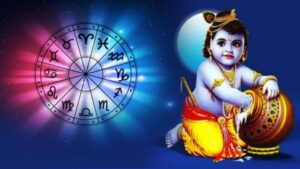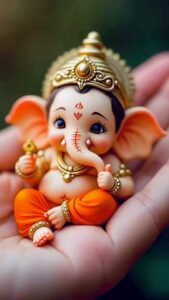Astrology and Hinduism share a deep, intertwined relationship that has been nurtured over millennia. In Hindu culture, astrology plays a crucial role in determining the timing and execution of rituals and festivals, ensuring that they are aligned with the cosmic forces that influence human life. By adhering to astrological guidelines, Hindus believe they can maximize the spiritual benefits and auspiciousness of their practices, leading to harmony, prosperity, and spiritual growth.
The Significance of Timing in Hindu Rituals
In Hinduism, timing is of paramount importance. The alignment of celestial bodies is believed to affect the energies that govern various aspects of life, including health, wealth, relationships, and spiritual progress. This is why many Hindu rituals and festivals are performed at specific times, known as Muhurats, to ensure that they coincide with favorable planetary positions.
- Muhurats: The Auspicious Timing
- Muhurats are auspicious time periods calculated based on the positions of the sun, moon, and other planets. These time periods are chosen to perform rituals, start new ventures, or conduct important life events, such as weddings, housewarming ceremonies (Griha Pravesh), and naming ceremonies (Namkaran).
- The selection of a Muhurat involves considering various astrological factors, including the Panchang (Hindu calendar), which provides details about the lunar day (Tithi), Nakshatra (lunar mansion), and planetary positions. By aligning activities with a favorable Muhurat, it is believed that one can invoke divine blessings and ensure the success and prosperity of the event.
- Nakshatras and Their Influence
- Nakshatras are the 27 lunar mansions or constellations through which the moon passes in its monthly cycle. Each Nakshatra has its own unique qualities and influences different aspects of life. The Nakshatra under which a ritual is performed can significantly impact the outcome of the ceremony.
- For instance, rituals performed under Rohini Nakshatra are believed to bring growth and prosperity, while Pushya Nakshatra is considered extremely auspicious for starting new ventures or performing spiritual practices.
- Tithis and Their Importance
- Tithis are the lunar days in the Hindu calendar, each associated with specific deities and qualities. Certain Tithis are considered more favorable for performing specific rituals. For example:
- Ekadashi (the 11th day of the lunar cycle) is considered highly auspicious for fasting and spiritual activities. It is believed to purify the mind and body, leading to spiritual growth.
- Purnima (the full moon day) is associated with fullness and completeness, making it an ideal day for performing rituals that seek divine blessings for prosperity and success.
- Tithis are the lunar days in the Hindu calendar, each associated with specific deities and qualities. Certain Tithis are considered more favorable for performing specific rituals. For example:
Astrology and Major Hindu Festivals
Hindu festivals are deeply connected to astrological phenomena, with many of them celebrated based on specific planetary alignments, lunar phases, and seasonal changes. Here’s how astrology influences some of the major Hindu festivals:
- Diwali (Deepavali)
- Astrological Significance: Diwali, the festival of lights, is celebrated on the Amavasya (new moon) of the Hindu month of Kartika. The alignment of the sun and moon during this period is considered to bring about the victory of light over darkness and good over evil.
- Rituals: Lakshmi Puja, the worship of the goddess of wealth, is performed during the Pradosh Kaal (evening) on this day, as it is believed that Lakshmi descends to earth during this time. The alignment of the planets during Diwali is thought to enhance the flow of positive energy and prosperity.
- Makar Sankranti
- Astrological Significance: Makar Sankranti marks the transition of the sun into the zodiac sign of Capricorn (Makar) and the beginning of its northward journey (Uttarayana). This festival is celebrated on January 14th each year and is associated with the sun’s movement from the southern hemisphere to the northern hemisphere.
- Rituals: Makar Sankranti is considered a highly auspicious time for performing charitable deeds, taking holy baths, and worshipping the sun god (Surya). The sun’s transit into Capricorn is believed to bring an increase in spiritual light and energy, making it an ideal time for spiritual practices.
- Navratri
- Astrological Significance: Navratri, the nine-night festival dedicated to the worship of the goddess Durga, is celebrated twice a year—during the transition from winter to spring (Chaitra Navratri) and from autumn to winter (Sharad Navratri). These periods are astrologically significant as they mark the change in seasons and the balance of cosmic energies.
- Rituals: Each day of Navratri is dedicated to one of the nine forms of Durga, with specific rituals and prayers conducted to invoke her blessings. The alignment of planets during these periods is believed to enhance the power of prayers and rituals, leading to spiritual purification and protection.
- Maha Shivaratri
- Astrological Significance: Maha Shivaratri, the great night of Lord Shiva, is celebrated on the 14th night of the dark fortnight (Krishna Paksha) in the month of Phalguna. The planetary alignment on this night is believed to be particularly favorable for spiritual growth and liberation (Moksha).
- Rituals: Devotees observe fasting, perform night-long vigils, and chant mantras in honor of Lord Shiva. The alignment of celestial bodies during Maha Shivaratri is thought to amplify the effects of meditation and prayer, making it an ideal time for spiritual practices aimed at self-realization.
Astrology and Personal Milestones
Astrology also plays a crucial role in determining the timing of personal milestones, such as:
- Weddings
- Muhurats: Selecting an auspicious Muhurat for a wedding is a common practice in Hindu culture. The alignment of planets during the wedding ceremony is believed to influence the harmony and longevity of the marriage. Astrologers consider factors such as the position of Venus (the planet of love and marriage), the moon’s phase, and the compatibility of the couple’s horoscopes (Kundli matching) to choose the most favorable date and time.
- Griha Pravesh (Housewarming Ceremony)
- Astrological Considerations: The timing of a Griha Pravesh ceremony is carefully chosen based on astrological calculations. The ceremony is ideally performed when the planets are favorably aligned to ensure prosperity, peace, and protection for the occupants of the new home. Factors such as the position of Jupiter (Guru), the moon’s phase, and the avoidance of inauspicious periods (like Rahu Kaal) are taken into account.
- Naming Ceremony (Namkaran)
- Astrological Influence: The Namkaran ceremony, where a newborn is given a name, is often performed based on the baby’s birth Nakshatra. The starting syllable of the name is chosen according to the child’s moon sign and Nakshatra, which is believed to harmonize with the child’s astrological chart and bring positive influences into their life.
Conclusion
Astrology is an integral part of Hindu rituals and festivals, guiding the timing and execution of these sacred practices to ensure that they align with the favorable energies of the cosmos. By adhering to astrological principles, Hindus believe they can enhance the spiritual benefits of their rituals, leading to greater harmony, prosperity, and spiritual growth.
At ApnaSanatan, we offer personalized astrological guidance to help you choose the most auspicious timings for your important life events and rituals. Whether it’s a wedding, a festival, or a personal milestone, our expert astrologers are here to ensure that your practices are aligned with the cosmic forces, bringing you closer to your spiritual and worldly goals.



